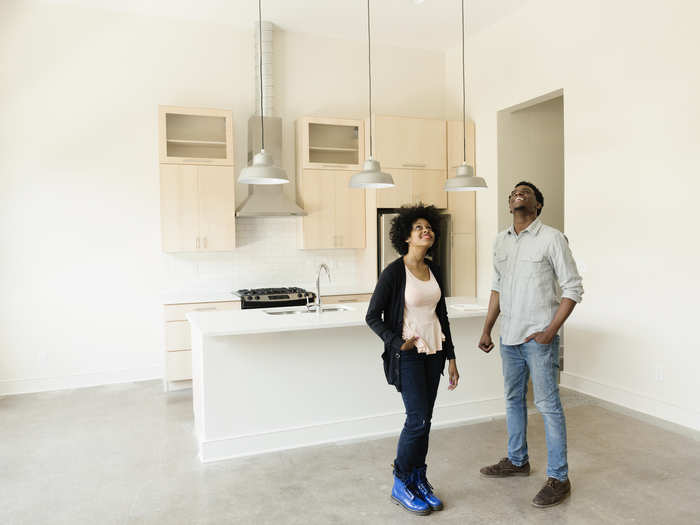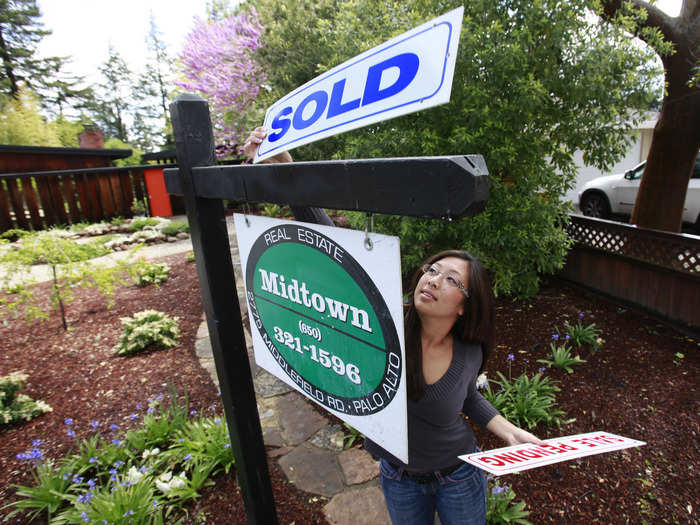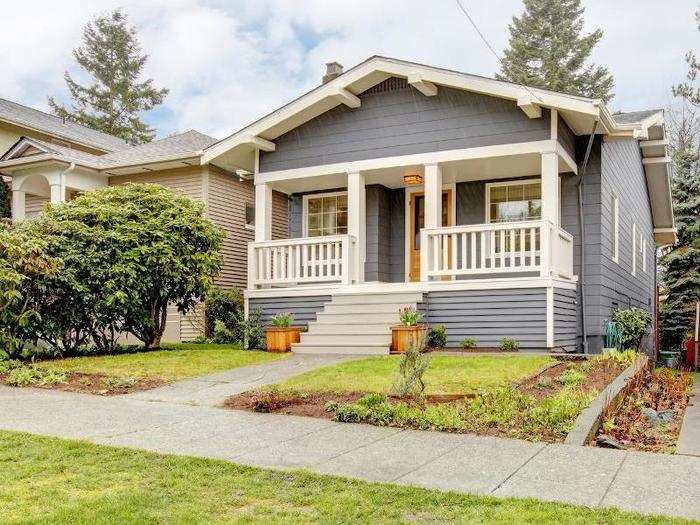- Home
- slideshows
- miscellaneous
- 7 signs you can afford a bigger house
7 signs you can afford a bigger house
Your debt-to-income ratio is low

You’re meeting your savings and investing goals

According to financial planner Lauren Lyons Cole, the average savings rate is around 7.5% of pre-tax income, but most people should shoot for a number higher than that.
Unfortunately, the stretch goal of saving 15% can be difficult to reach, says Cole. But that doesn't mean you should give up.
"Perhaps you could save 1% more than you are now, or 3% more," she says. "Incrementally increasing your savings will help your account balances grow, but it does something else that's even more valuable: It creates momentum. Once you start moving, it's easier to keep going."
If you have no idea if you're on track to retire one day, you should also play around with a retirement calculator like the one below before you buy a bigger home.
You have plenty of insurance

Are you properly insured? This is a great question to ask no matter where you are in life, but it's even more crucial when you're getting ready to buy a larger, more expensive home.
Remember that your family will be stuck with your debts and liabilities when you pass away, so you want to make sure you have enough life insurance to replace your income and pay off all your debts in one fell swoop.
Fortunately, term life insurance is cheap and easy to buy — especially if you're young and healthy. Make sure to get a few life insurance quotes and buy enough life insurance to protect your family before you buy a larger house.
Get a life insurance quote today from Policygenius and see how much a term policy will cost you »
Your emergency funds are plentiful

Like it or not, the best mortgage terms and interest rates go to buyers who have at least 20% to put down on a home. Heck, even government-backed mortgages like FHA loans require a 3.5% down payment. In other words, it's hard to escape the fact that you'll need a down payment.
But your emergency savings need to stretch further than that. Not only do you need standard emergency savings to cover a job loss or pay cut, but you'll need money to pay for moving expenses.
And what about simple upgrades to your new place before you move in? Home repairs? Home inspections and closing costs?
You have good or excellent credit

If you hope to get a mortgage with the best interest rate and terms, you'll also need good or great credit. According to myFICO.com, "exceptional" credit is any score over 800 while "very good" credit is any FICO score between 740 and 799.
If you don't know how your score looks, it makes sense to check your credit score before you apply for a mortgage.
You have a grasp on your monthly expenses

If you're not already using a monthly budget, you may want to start before you upgrade your home and your mortgage payment.
Using a budget helps you understand how much you're paying for food, discretionary expenses, car payments, and other bills. Without one, you may not understand how much income you're spending each month and even how much you're saving.
If you add a new mortgage payment to the mix without having a grasp on your current finances, you could be setting yourself up for financial disaster.
You’ve considered the financial implications

In addition to a higher monthly mortgage payment, you might also need to pay higher property taxes, heftier utility bills, and more for maintenance and repairs. Replacing a roof on a 4,000 square foot home is a lot more expensive than buying a new roof for a three-bedroom ranch house, after all.
In other words, buying a larger home means having more money now and more cash stashed away for later. If you're worried a larger home might send your finances into a tailspin, you should probably listen to that inner voice and keep working toward your financial goals.
Popular Right Now
Popular Keywords
Advertisement